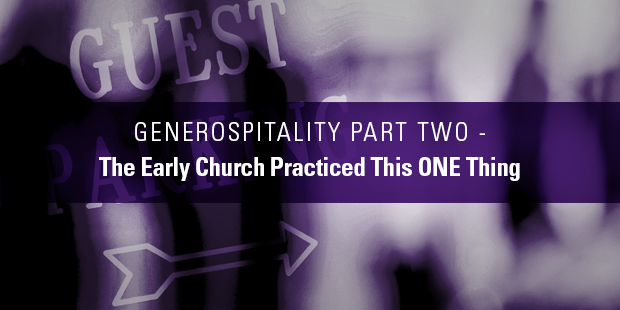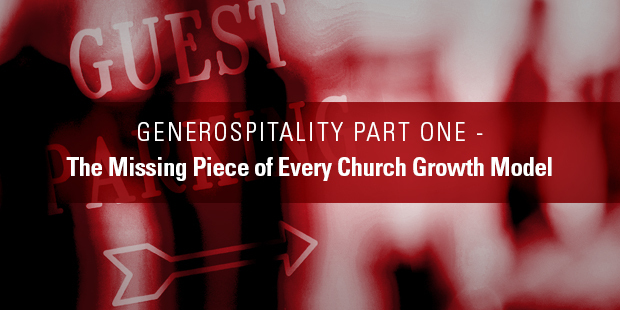
Generospitality Part Six – One Last Reminder About THIS WEEK’s Guest
Therefore, be imitators of God, as dearly loved children, and walk in love, as Christ also loved us and gave himself for us, a sacrificial and fragrant offering to God. – Ephesians 5:1-2 CSB
First-time guests may not remember any of the points in your message or any of the words of your music, but they will remember every moment of your welcome.
A culture of joyful, or joy-full, generosity rests on a foundation of careful, or care-full, hospitality. A church that shows their love for strangers is a church that shares their love with each other, for the advancement of God’s Kingdom. Every step we take toward welcoming strangers with love moves us forward in sharing with the body in love. If the Early Church couldn’t separate loving each other from loving every other, then we shouldn’t try to either.
Consider what may be the most important metric for you to monitor: new givers. How many new people or families began to live in obedience through Biblical generosity this last year? For the most part, many of those first-time givers were also first-time guests. Your culture of welcome set the standard for their commitment to giving from the first time they visited your website. Smiling faces, manicured hedges, and helpful signage all speak to the love your church has for the stranger, those whose names we’ve not yet learned. Your church will demonstrate generosity in their hospitality before you ever communicate about giving in a membership class.
It remains then that Generospitality changes everything for you, your church body, and for your guests. Loving each other, and then loving every other, are actions that will change everything for someone this Sunday.
Stop and consider your guest one last time.
Right now the Holy Spirit is at work in someone’s life, stirring him or her to be your guest this Sunday. Some kind of crisis or challenge has moved them to make this the week they finally attend your worship service. The risk of going to your church to find God will finally be less than the risk of facing another week without Him. Your guest this Sunday will have seen your building or your website. They have likely heard someone else talk about your church. Chances are high that a friend or family member already attends and extended an invitation. They have probably prayerfully invited them for years. Of all the reasons why and how, one simple fact remains: they are coming.
This is their week to attend, and this is your week to love.
This Sunday will be the next opportunity to love each other in generosity. It will also be the next opportunity to love every other, through hospitality. It’s your chance to love by means that change the direction of someone’s life as well as the destination of their eternity. This Sunday, the Lord will add to your number those who are being saved.
Are you ready?
> Download the Seven Checkpoints of an Engaging Guest Experience Tool here.
Want to improve your church’s Guest Experience? Learn how at the Guest Experience Boot Camp coming to West Palm Beach, FL February 26-27!


Tags: Bryan Rose, Church Guest Experience, Generospitality, guests






















